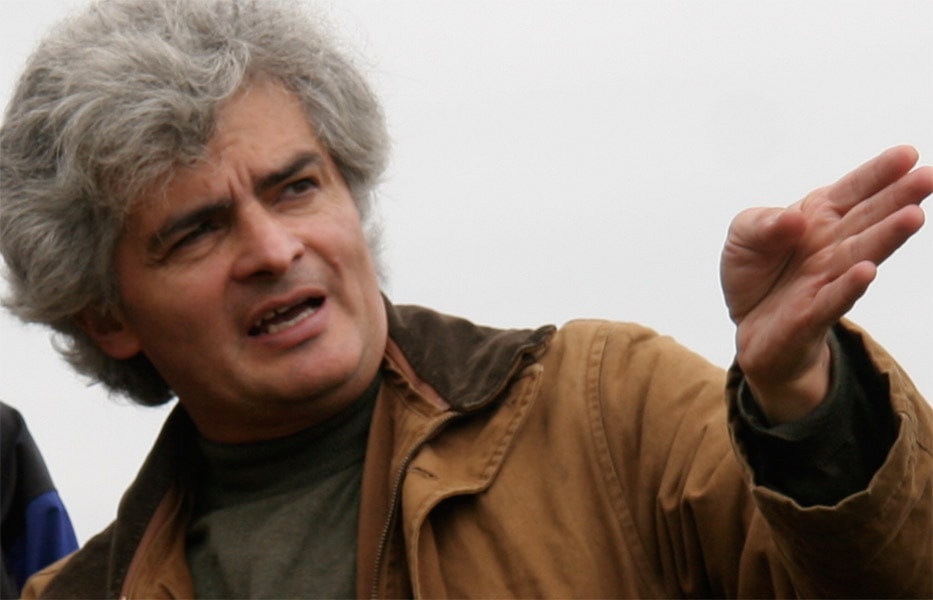Dr. Ignacio Chapela on why he is optimistic about the state of science in the public interest despite the dominating influence of industry in academia.
In November 2001, Dr. Ignacio Chapela, a microbial ecologist and mycologist at the University of California, Berkeley, co-authored a paper in Nature concerning his research on maize crops in Mexico’s Oaxaca region. The study’s findings – that native maize crops were being contaminated by genetically modified seeds – set off a firestorm of criticism and attempts to discredit its authors. But Chapela was not new to controversy; four years earlier he had opposed a multi-million dollar deal between UC Berkeley and agro-biotech giant Novartis to conduct agricultural biotechnology research at the university. Chapela was denied tenure for seven years.
Chapela talks about his experience, which he calls the “organised efforts of the agro-biotechnology industry to discredit my person,” and why, despite the dominating influence of industry in academia, he is still optimistic about the state of science in the public interest.
Listen to the interview (English, 5 min 22 sec).
Audio Transcript
In reading about your case, it’s hard not to become depressed or cynical. What keeps you going?
Ignacio Chapela: It is true that it’s easy to become cynical and depressed. The improper influence of moneyed interests, of political interests, in what we are allowed to know and research is dominant right now. However, I still believe there is a very important place for public science, understanding and learning, and as long as I have this opportunity, I consider myself incredibly privileged. Interacting with young people who are really hungry for these different kinds of knowledge and understanding, interacting with other researchers around the world who see the need for these kinds of research, is an incredibly positive kind of feeling and source of energy and power.
You have said that you feel that these kinds of attacks that you and other scientists have faced are deterring young scientists. What advice would you give someone entering the field?
Yes, this is the suppression of science “in the bud”, that is, with young people who are just considering, imagining, thinking that they might go into science for the public. Many of them are discouraged by looking at these stories. But as the years go by, more and more young people are coming out of the woodwork and saying, “I’m not going to get a job anyway” so I can afford to go and do something for the public, for almost free, all of these young people who are looking into internships and badly paid jobs anyway.
I’ve had this perception in the last couple of years that there is a whole field of free, independent, liberated research and academia that is coming of age. People have talked about this for many years, but I think the conjunction of this completely out of hand influence of industry, military and so on, together with the economic situation, is bringing out many people to finally say “we need to change this”. And it is not rosy optimism. Things are changing slowly. Of course there is a lot of pain, but they are changing.
What hope do you have for academic freedom in a world that’s increasingly dominated by corporate funding of research?
It is true the vast majority of research efforts (labs, employees, students, and so on) are taken over by industrial and corporate interests. And yet, there are spaces in which a liberated kind of research in the interest of the public is still possible. The question really will come down to seeing whether the public eventually wakes up and realises that this is something that is of interest to them – at which point, I think, the political forces would start turning the situation around.
It’s hard to imagine how that is going to happen given the current situation, but I don’t think anybody at this point is expecting a solution to the problems that we are living through to come from the dominant place. The solutions will come from the margins. I find it fascinating and encouraging to interact with those margins, to actually move on the edges of that prostituted, dominant form of doing science and teaching.
Well that’s hopeful.
I know, I know. Five years ago, I would not be speaking like this. Truly.
Thank you, for speaking out, for continuing to speak out, and for speaking with us today.
I thank you.
Dr. Ignacio Chapela spoke to Diane Partenio, a freelance journalist based in Toronto. This transcript has been edited and condensed.
